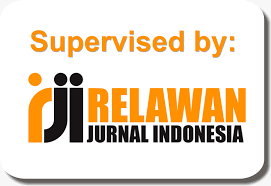THE USE OF CHATGPT IN ENGLISH WRITING ACTIVITIES:
STUDENTS’ VOICES
Keywords:
ChatGPT, English Writing Activities, students' perceptionAbstract
The rapid development of artificial intelligence has influenced education, including the use of ChatGPT in language learning. ChatGPT can revolutionize many aspects of education, such as retrieving information, responding to specific questions in a variety of subjects, participating in open discussions, writing and editing essays and reports, creating software code, mentoring students by elucidating programming concepts, supplying sample data for databases and analysis, and carrying out computations. This study investigated students’ perceptions of using ChatGPT in English writing activities at the English Education Study Program of UIN Raden Fatah Palembang. A quantitative approach was used with 136 fourth-semester students as the research participants. Data were collected through an open-ended questionnaire focusing on six aspects: ChatGPT usage, impact on writing, reliability and accuracy, contribution to learning goals, user experience and satisfaction, and training needs. The findings showed that most students had a positive view of ChatGPT, especially in brainstorming and organizing ideas. About 91.3% of students had used ChatGPT in class, and 94.9% had prior experience. Although only 8.7% used it regularly, ChatGPT was seen as helpful for improving efficiency, creativity, and confidence. Students also recognized its limitations, such as the necessity of information verification and avoiding over-reliance. The study concludes that ChatGPT can be a valuable tool for academic writing when it is combined with strong digital literacy and ethical use.
References
Abdullayeva, M., & Muzaffarovna, M. Z. (2023). International conference of education, research and innovation. Australasian Journal of Paramedicine, 9(1), 61–66.
Crawford, J., Cowling, M., & Allen, K. A. (2023). Leadership is needed for ethical ChatGPT: Character, assessment, and learning using artificial intelligence (AI). Journal of University Teaching and Learning Practice, 20(3). https://doi.org/10.53761/1.20.3.02
Črček, N., & Patekar, J. (2023). Writing with AI : University Students ’ Use of ChatGPT. 9(4).
Creswell, J. W., & Creswell, J. D. (2018). Mixed Methods Procedures. In Research Design: Qualitative, Quantitative, and Mixed Methods Approaches.
Dania, R., Erlina, D., & Amalia, H. (2024). Writing report texts: A challenge for students. JADILA: Journal of Development and Innovation in Language and Literature Education, 4(2), 124–133.
Fitria, T. N. (2021). The use technology based on artificial intelligence in english teaching and learning the use technology based on artificial intelligence in english the industrial era has influenced everyone to be able to adapt to rapid changes. The technology was created. December 2021. https://doi.org/10.24235/eltecho.v
Fitria, T. N. (2023). Journal of English Language Teaching Artificial intelligence ( AI ) technology in OpenAI ChatGPT application : A review of ChatGPT in writing an English essay. 6(361), 44–58.
Halaweh, M. (2023). ChatGPT in education: Strategies for responsible implementation. Contemporary Educational Technology, 15(2). https://doi.org/10.30935/cedtech/13036
Hasanah, U., & Nurcholis, I. A. (2024). English Education Students ’ Perception of the Use of ChatGPT in Writing Articles. 2, 1–10.
Hatmanto, E. D., & Sari, M. I. (2023). Aligning theory and practice: Leveraging ChatGPT for effective English language teaching and learning. E3S Web of Conferences, 440. https://doi.org/10.1051/e3sconf/202344005001
Hendrety, Y. (2016). The comparison of using roundtable activity and picture for improving the second year students' writing skill at SMA Negeri 3 Palembang. Jurnal Didascein Bahasa, 1(2), 44–58.
Hidayatullah, E. (2024). Evaluating the effectiveness of ChatGPT to improve English students’ writing skills. Conference Series, 1(1), 14–19.
Hostetter, A. B., Call, N., Frazier, G., James, T., & Linnertz, C. (n.d.). No Title. 1–40.
Khasanah, A. M., Tadris, E., Program, S., Faculty, T. H. E., & Tarbiyah, O. F. (2024). The use of ChatGPT in student s’ writing task (a descriptive study of fifth semester students of English Tadris Study Program at IAIN Curup).
Kohnke, L., Moorhouse, B. L., & Zou, D. (2023). ChatGPT for Language Teaching and Learning. RELC Journal, 54(2), 537–550. https://doi.org/10.1177/00336882231162868
Mahapatra, S. (2024). Impact of ChatGPT on ESL students ’ academic writing skills : a mixed methods intervention study. Smart Learning Environments. https://doi.org/10.1186/s40561-024-00295-9
Mennalla, T. A., & Quadros-Mennalla, P. S. (2024). Student Use, Performance, and Perceptions of ChatGPT on College Writing Assignments. 21.
Putri, R. A., Ilma, R., & Kurniasari, R. (2024). Students’ writing anxiety and its correlation to their writing achievement. DIDASCEIN: Journal of English Education, 5(2), 99–106.
Risnina, N. N., Tiara, S., Permatasari, I., & Nurulhusna, A. Z. (2023). Pengaruh ChatGPT Terhadap Proses Pembelajaran Mahasiswa di Institut Teknologi Sepuluh Nopember. 2(4).
Xiao, Y., & Zhi, Y. (2023). An Exploratory Study of EFL Learners ’ Use of ChatGPT for Language Learning Tasks : Experience and Perceptions. 1–12.
Zebua, J., & Katemba, C. V. (2024). Students ’ Perceptions of Using the OpenAI ChatGPT Application in Improving Writing Skills. 4(1), 110–123.
Downloads
Published
How to Cite
Issue
Section
License
Copyright (c) 2025 Natasya Aprodi Giani, Ridha Ilma, Hariana Amalia

This work is licensed under a Creative Commons Attribution-NonCommercial-ShareAlike 4.0 International License.







